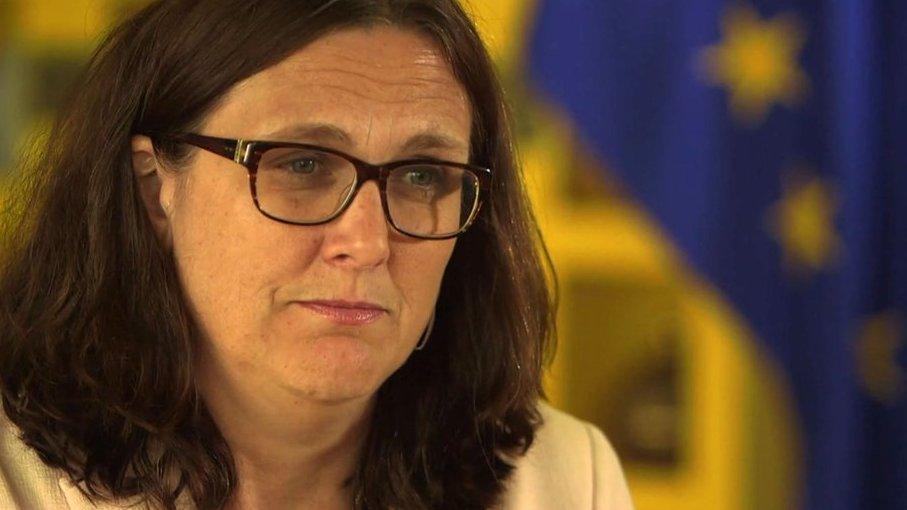Brexit: Foreign secretary says UK must 'pedal faster'
- Published
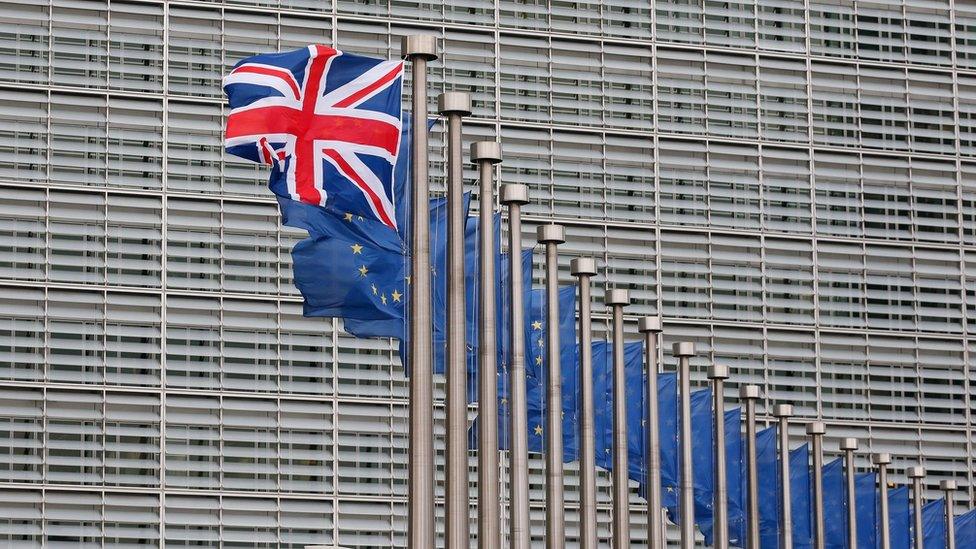
Gathered this week in the august grandeur of the Locarno rooms at the Foreign Office were more than 200 of Britain's most senior diplomats.
They had come together from all corners of the world not for a post-Brexit panic, but for their annual knees-up - otherwise known as "the leadership conference".
The department's permanent secretary, Sir Simon McDonald, rose to say a few words and then introduced Philip Hammond: "Ladies and gentlemen, the foreign secretary."
With a smile, Mr Hammond gently corrected him: "The foreign secretary... for now." Nervous titters all round.
Nothing could better illustrate the state of flux that grips Britain's foreign policy.
After the vote to leave the EU, there is no certainty over leadership until the new prime minister is elected in September.
And there is no certainty over policy until the new administration has decided where the UK's national interests lie.
Turf wars
In the short term, Whitehall is being reconfigured to tackle what is the biggest change to Britain's international relations in a generation.
The Chancellor of the Duchy of Lancaster, Oliver Letwin, is setting up a new Brexit unit at the Cabinet Office.
Its job is to prepare for the negotiations to come: collecting facts, analysing those facts; drafting options papers and recruiting officials and trade negotiators so the next government has something and somebody to work with.
The unit already has its own permanent secretary, an ex-Home Office official called Oliver Robbins, who is greedily sucking up the best talent from across Whitehall - particularly the Foreign Office, the Treasury and the business department.
The unit will clearly form the bones of what in time may become a separate department of government if Theresa May wins the premiership.
Already the Whitehall turf wars have begun over the new power structure, and noses are being put out of joint.
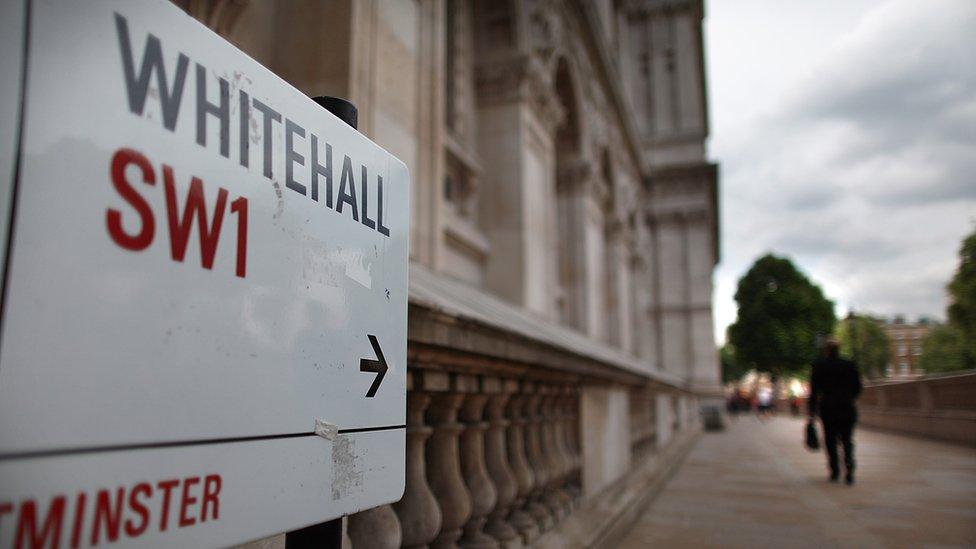
The civil service has also begun the enormous task of mapping every law in the nation that derives from the EU.
They are - for now at least - literally countless.
The whole of the Government Legal Service, external has been mobilised to begin a process that could take years.
The aim is to have the ability to transfer EU law into UK law the moment Britain leaves so Parliament can start unpicking what it does not like at leisure.
At the same time, more diplomats will be sent to bolster denuded embassies around Europe and begin preparing for the process of unstitching the UK from the EU.
Mr Hammond told MPs on the Foreign Affairs Committee, external this week that the Treasury had not offered him more money to do this and nor had he asked.
Instead, he said he would use savings that had been identified for the spending review last year but not then made - and that now will be.
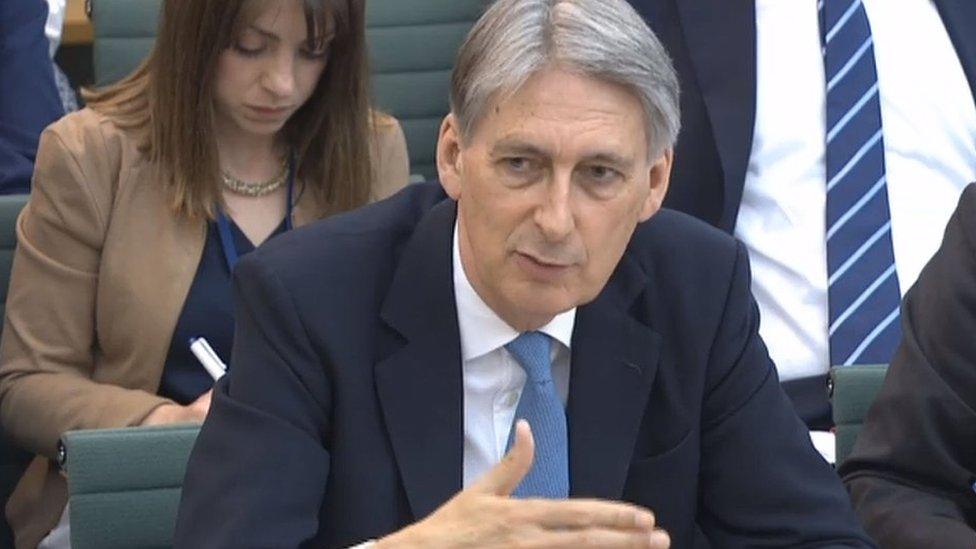
Philip Hammond told MPs about the UK's plans to "pedal a bit faster"
He dismissed MPs' demands for a doubling or even a trebling of the Foreign Office budget, saying it was not remotely realistic.
Others, such as the former Foreign Office permanent secretary Sir Simon Fraser, disagree and argue for "a very considerable uplift" in spending to restaff embassies that he had to cut when he was in post.
The EU may have banned any pre-negotiations with Britain before Article 50 of the Lisbon Treaty, external is triggered, but that is not stopping British diplomats scurrying around Europe trying to reassure their counterparts and get some idea of the context in which the negotiations may start in the months or even years to come.
"Conversations are taking place and have taken place at both official and ministerial levels to understand where the other is coming from," the Minister for Europe, David Lidington, told peers this week.
"The other governments are still very anxious to understand where the present British government are in their approach to these matters."
Sharp end
These, however, are just logistical and technical preparations that can be made while we wait for Conservative Party members to choose the next prime minister.
Yet while we wait, a new form of diplomacy is already evolving - one that could probably best be described as doing more with less.
This is how Mr Hammond summed it up at the Foreign Affairs Committee: "We will have to lean in harder in the multilateral institutions, and in our bilateral relationships and we will have to pedal a bit faster in order to make sure our voice is heard and our influence still counts."
So what might pedalling faster mean in practice?
At the United Nations in New York, British diplomats acknowledge that their job has got bigger.
This is now the sharp end of where the UK engages with the world.
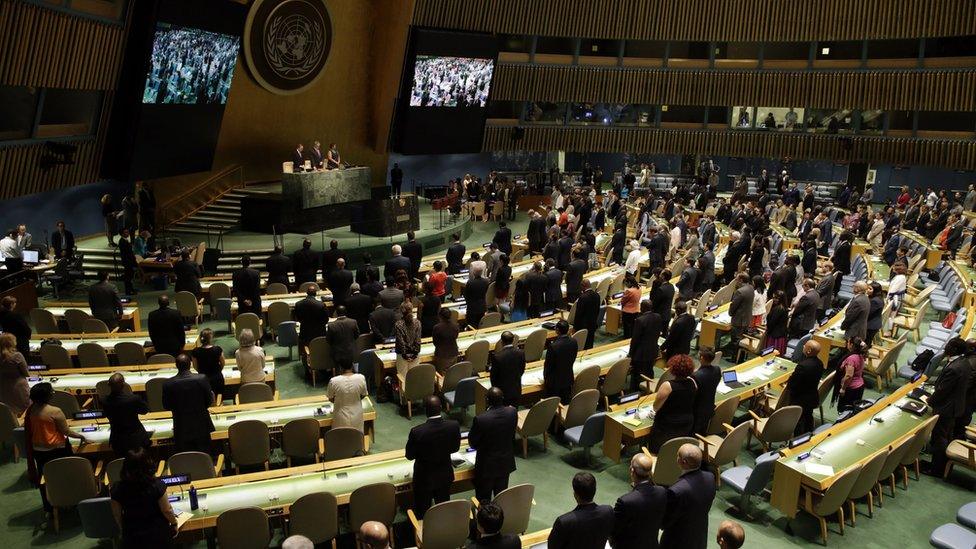
The UK will step up its work at the UN in New York
The UK will remain one of the five permanent members (P5) of the Security Council, external, just as it was before we joined the EU.
As such, Britain will focus even more on the negotiations it leads at the UN over Libya, Yemen, Somalia, Darfur and Cyprus.
And as one of two European countries on the P5, the UK's briefings for the EU heads of mission in New York are something that the EU would be loath to lose post-Brexit.
At Nato, Britain is already pedalling faster, committing at the Warsaw summit more British troops and support in eastern Europe.
The UK will also be taking responsibility for Nato's rapid-reaction task force next year.
"Britain is not be going to be playing a lesser role in the world," the prime minister said to any camera he could see as he arrived in Poland.
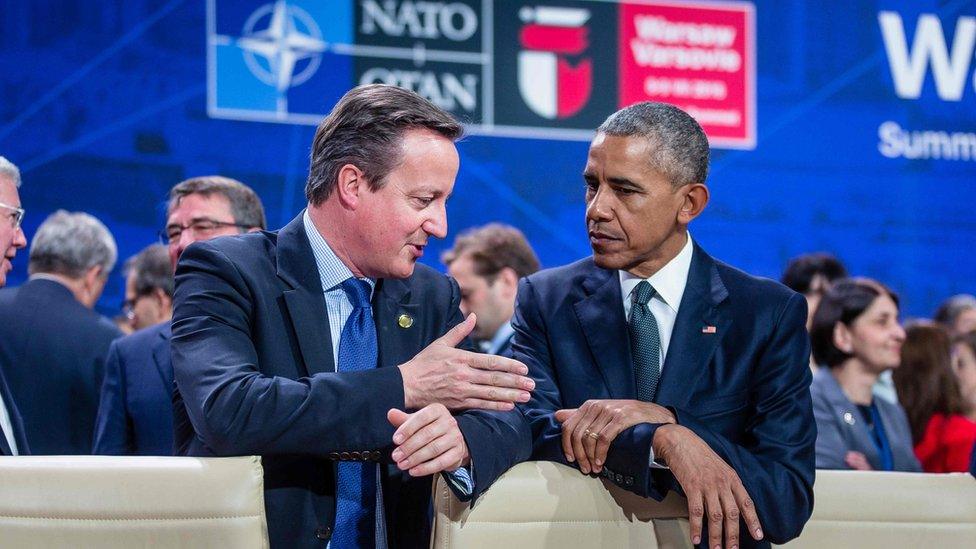
David Cameron met world leaders including Barack Obama in Warsaw
The foreign secretary, also in Warsaw, emphasised that the UK would remain the second-largest contributor of money and armed forces to Nato.
Reassurance, if nothing else, for European nations fearful that the UK is turning in on itself.
MPs are already wondering if a future chancellor will find the money to increase defence spending more generally, again to reinforce this idea that the UK is not retreating from the world stage.
Britain's former ambassador to the US, Sir Christopher Meyer, has recommended that the government increases defence spending by 0.5% - or even 1% - and ring-fences it for Nato operations.
Diplomatic purgatory
Certainly the foreign secretary is talking openly about how he sees one of the best ways a post-Brexit UK could stay engaged with the EU is through foreign, defence and security co-operation, where the EU already operates on a basis of unanimity.
"I see no reason why we cannot agree to continue working by consensus outside the EU, as Norway co-operates with the EU on defence and security matters," Mr Hammond told MPs.
So Britain's foreign policy is already adapting to the new post-vote, pre-Brexit hiatus, a diplomatic purgatory that could last for some years.
The proof is that diplomats have already changed their language to reflect the new reality.
When the UK was part of EU attempts to secure a deal to curb Iran's nuclear ambitions, the negotiating group was known as the E3+3, namely three EU countries - Germany, France and Britain - along with Russia, China and the US.
In the Foreign Office they now prefer to use its alternative name, the P5+1: the five permanent members of the UN Security Council plus Germany.
If only the rest of Brexit could be so easy.
- Published26 June 2016
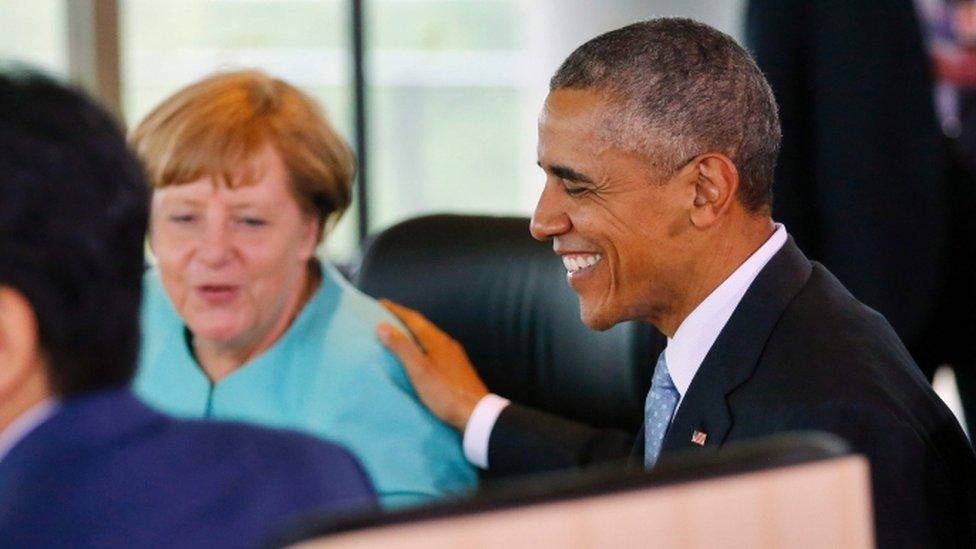
- Published26 June 2016
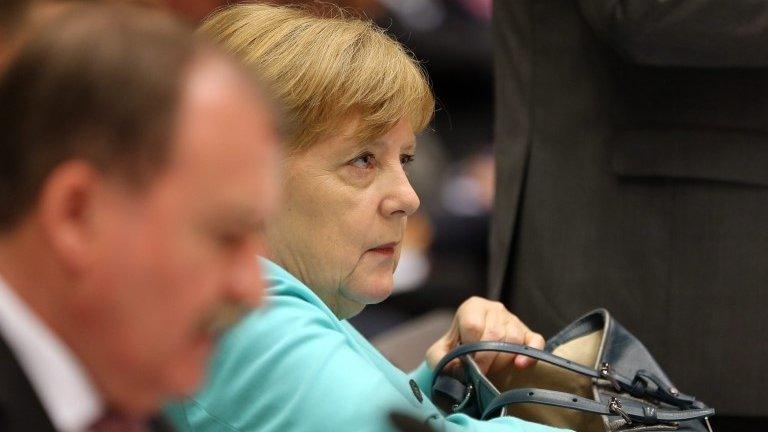
- Published30 June 2016
